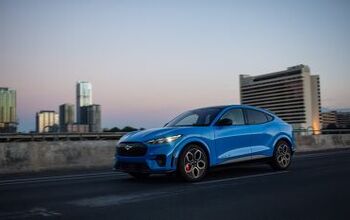Nissan Prepares For The Worst In China

All three major Japanese automakers have reported their half year financial results. After Honda last week and Toyota yesterday, Japan’s number two automaker Nissan followed today. The presentations could not have been more different.
After the world had seen Japanese cars upended and dealerships torched in China, and after Honda had cut its profit forecast for the fiscal year to March by more than a billion dollars due to a drastic drop in China sales, observers expected other Japanese majors to follow suit. Yesterday, Toyota did the opposite and upped its profit forecast for the current fiscal by a few billion yen. Today at Nissan in Yokohama, it was back to the brutal realities.
In the first half, Nissan delivered operating profit of 287 billion yen ($3.61 billion), and a net profit of 178.3 billion yen ($2.25 billion), 2.8 percent lower than in the same period of the previous year.
The full impact of the islands row hit after the books were closed. In its guidance for the full fiscal year that ends on March 31, 2013, Nissan expects a net income of 320 billion yen (US $4 billion). Like Honda, Nissan lopped a full billion off what Nissan COO Toshiyuki Shiga called a “very conservative, worst case scenario” forecast. Along with the financial forecast, Nissan also lowered its projected sales by 270,000 units to slightly over 5 million, 175,000 of those due to China.
Other than Toyota’s presentation, where China received a few passing mentions, Nissan’s conference was all about China. Shiga said the showroom traffic is picking up again and that orders are returning. He has “seen improvements to about 70 percent of normal.” 30 percent less than normal is seen as an improvement over past weeks, where showrooms were near empty.
Nissan’s formerly ambitious growth plans in China definitely have been stunted. Nissan had been running on an annualized clip of 1.17 million units for China, and had hopes for more. Now, Nissan is trying to maintain last year’s level of a little more than 800,000 units, Shiga says.
Why do the fallouts of the China row hit Nissan and Honda in the solar plexus , while eliciting little more than a la-di-da from Toyota? Of the three Japanese majors, Toyota has the smallest exposure to China, and where one does not have much, not much can be lost. On the other hand, one cannot shake the impression that Toyota is whistling a bit in the dark.

Bertel Schmitt comes back to journalism after taking a 35 year break in advertising and marketing. He ran and owned advertising agencies in Duesseldorf, Germany, and New York City. Volkswagen A.G. was Bertel's most important corporate account. Schmitt's advertising and marketing career touched many corners of the industry with a special focus on automotive products and services. Since 2004, he lives in Japan and China with his wife <a href="http://www.tomokoandbertel.com"> Tomoko </a>. Bertel Schmitt is a founding board member of the <a href="http://www.offshoresuperseries.com"> Offshore Super Series </a>, an American offshore powerboat racing organization. He is co-owner of the racing team Typhoon.
More by Bertel Schmitt
Latest Car Reviews
Read moreLatest Product Reviews
Read moreRecent Comments
- SCE to AUX "CEO Atsushi Osaki said Subaru remains committed to its horizontally opposed engine because it's a brand-building icon....Mazda CEO Masahiro Moro said his company will develop future versions of its trademark rotary engine to run on carbon neutral fuels and combine with electrified hybrid setups."These statements say a lot about how lost these companies are.[list][*]Subaru sticks with the boxer because it's an 'icon', not because of any technical merits?! Sad - the boxer is a loud, inefficient engine - so they're right. Does anyone actually buy a Subaru for the boxer engine?[/*][*]Mazda predictably killed the rotary range extender on the extinct MX-30 because it couldn't pass emissions. That's the story of its life. It's a terrible engine, but Mazda slavishly wastes money on it every year.[/*][/list]
- El scotto Please ohhh please Abarth most of them. Well, OK some pastel ones too.
- El scotto The daughter got a Fiesta, son got a Ranger. Both stick and both bog-slow. My Ex had an A-6 and I had a Mustang GT convertible they could borrow "when needed". That seemed to happen a lot.All four of us had dual-use motorcycles; small on/off-road bikes. Wife/Me/Daughter rode our little Vespa. Son like borrowing my Sportster. I prayed to several deities when they both borrowed my Ducati.Please consider this was in rural Indiana where the closest interstate was an hour away.
- El scotto All I know is that if I had a hybrid I would run out of electrons and dino juice at the same time. In the dark, in the rain, on the PA Turnpike.
- El scotto Since it's an election year, I'll go all jingoistic. Yep, 7500$ tax credit for an EV, 5000$ for a Hybrid, and 2000$ for ICE, any and all tax brackets. Since it's an election year, they have to be American-made. Repeat, American-made! Americans helping Americans!







































Comments
Join the conversation
Does it have anything to do with Toyota treating the chinese sales as a separate company not wholly owned (equity method)? Maybe Toyota is doing one of the classic play of not answering the real question and instead giving a technically correct answer and forecast based on "all known information" for their operations.